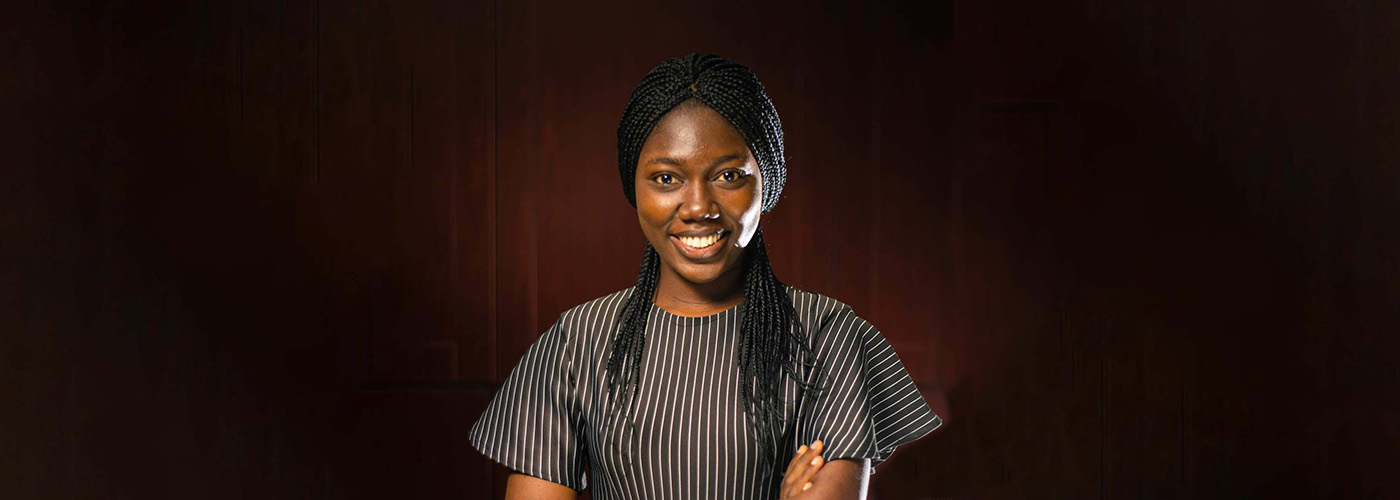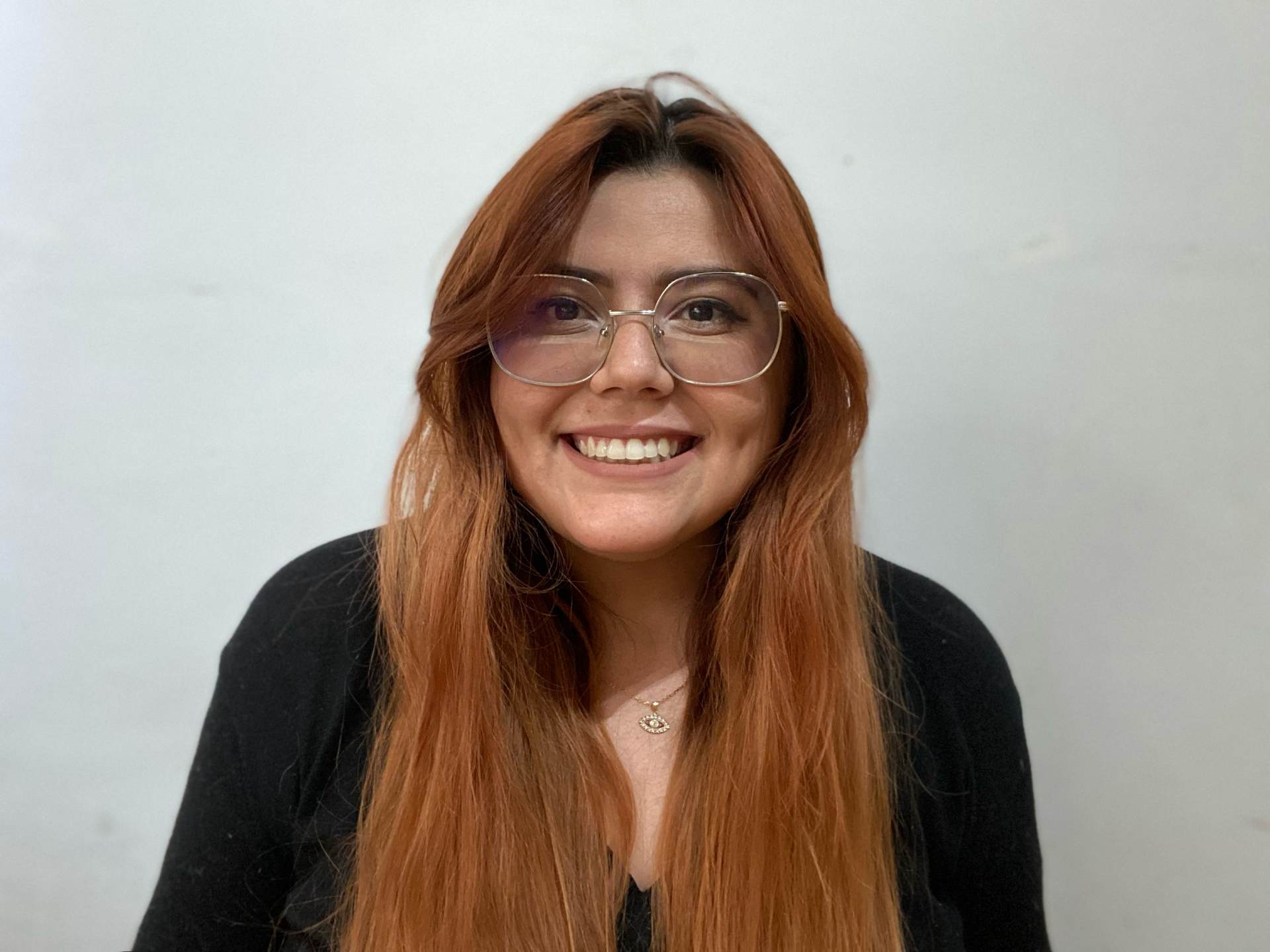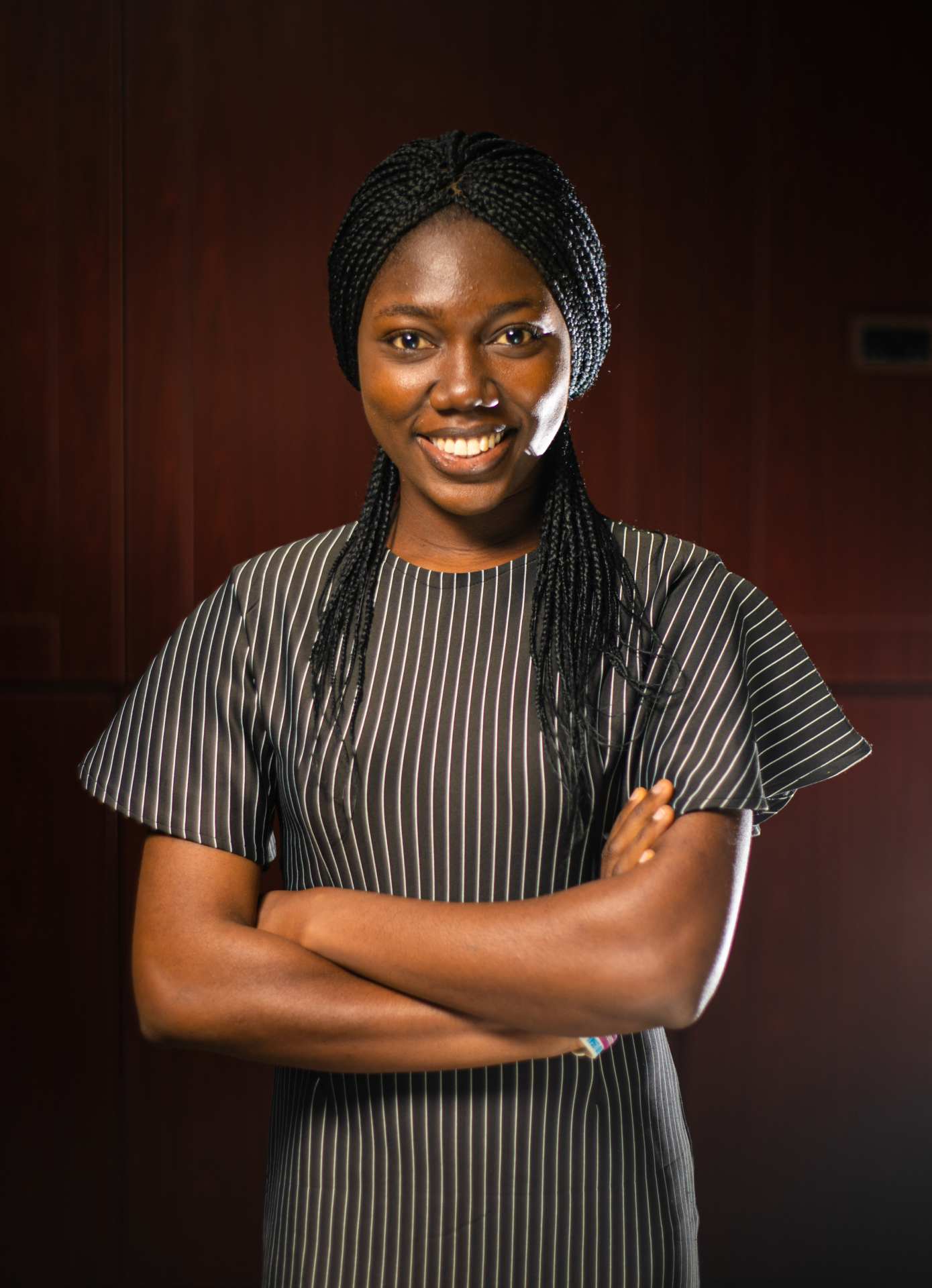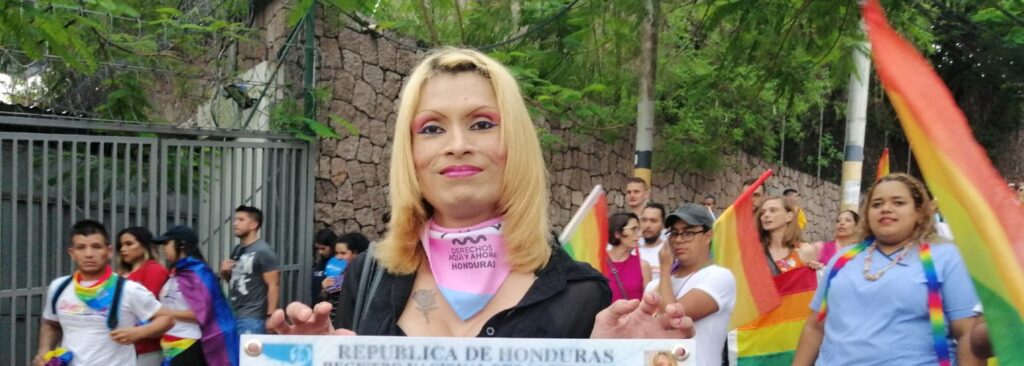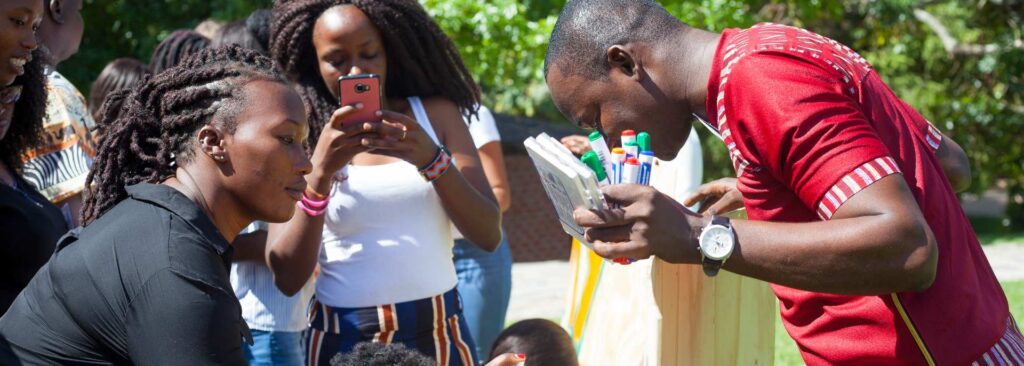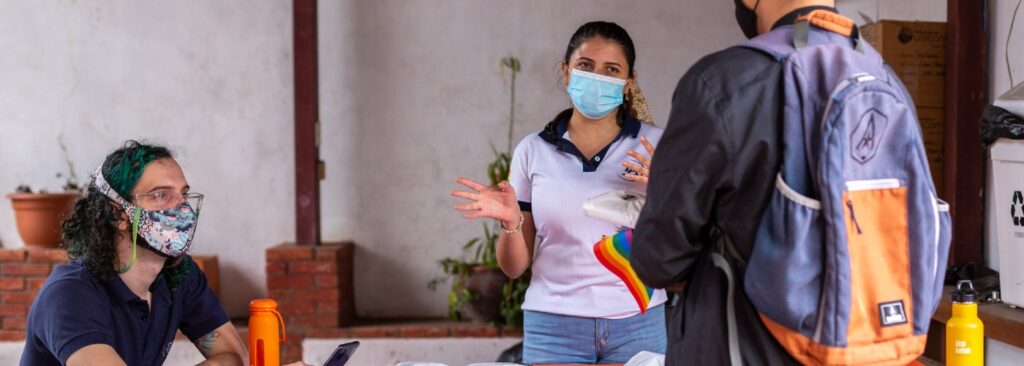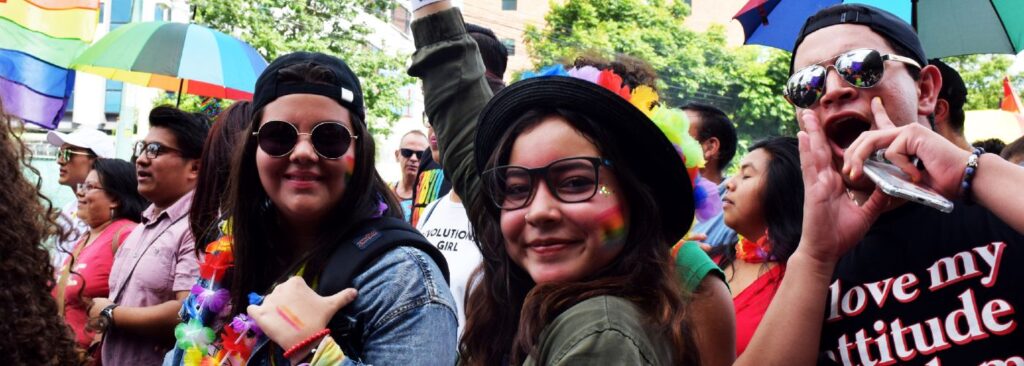Adolescent girls and young women are disproportionately the objects of gender-based violence. Especially those who are displaced, live with a disability or HIV, or who identify as lesbian, bisexual, transgender or intersex. They are often the most neglected and the hardest to reach. That is why during this year’s 16 Days of Activism against Gender-Based Violence we want you to meet some of the inspiring activists who are part of our We Lead program.
We Lead started at the beginning of 2021 with this aim: that young women rightsholders can claim their sexual and reproductive health and rights (SRHR). Young people often outnumber adults, yet adults decide about their sexuality and access to SRHR information and services – especially in the case of young women. Moreover, the young women and adolescent girls (15-30) that We Lead focuses on are disproportionately affected by discrimination and gender-based violence. And many are also at the intersection of multiple stigmatized identities, such as young refugee women with a disability or with HIV.
So far, we have found several young women facilitators who have engaged local organizations to establish “communities of action.” These communities of action (CoAs) are made up of multiple organizations representing different rightsholder groups. Jointly, they have come up with action plans to work towards the aim of We Lead.
Keren Dunaway
One particularly stigmatized group are young women living with HIV. Keren Dunaway has been fighting this stigma and discrimination since the age of eight by educating and sensitizing her community in Honduras about HIV. “But especially sensitizing children of my own age,” she says. “In 2006, when I was eight, I helped launch the first edition of Llavecitas Magazine, the only magazine in Honduras created by and for children and adolescents living with HIV.”
Keren now works for LLAVESS, an organization that uses strategic communication for HIV prevention and advocacy. She is a firm believer in comprehensive and secular sex education. “The deficiencies in the education system mean that adolescent girls and young women don’t recognize their reproductive health as a human right. This prevents them from accessing basic health services and the means to prevent unwanted pregnancies and protect themselves from sexually transmitted infections, including HIV.”
Her advocacy focuses for a large part on women. “Throughout my life, I have witnessed injustices that affect women’s sexuality and our right to choose. They all revolve around women’s lack of autonomy and enabling circumstances to make decisions about our bodies and our sexuality.” She explains further: “Despite the fact that young women represent about 41 percent of those living with HIV in Latin America, their plight and the barriers they face aren’t visible. Our ability to participate in designing, implementing and monitoring public policies and programs is limited because we aren’t recognized as a key population, and our specific needs aren’t a priority for the government.”
Sara Barakji
Another often ignored group are displaced women. Sara Barakji tries to change this in her work for the Palestinian Women’s Humanitarian Organization in Lebanon. She is the coordinator of their Leadership & Development program. “Most women inside the Bourj al Barajneh refugee camp are deprived of basic rights like education and health. That’s why I’m excited to work in this field and help women claim their rights and prioritize their health.”
What the women often lack is information. “Under the concept ‘Know your body,’ we’re educating young women and girls from the age of 12 to get to know their bodies. It’s important they have accurate information about things like menstruation, also to overcome taboos and stigma related to women’s health,” Sara explains. “And I also work on gender-based violence (GBV) because most of the women in the camp don’t know anything about this.”
Tobi Ayodele
Lack of information is a common thread when it comes to SRHR for young women. That is why Vision Spring Initiative in Nigeria works to educate young women and girls so they can make informed decisions. Oluwatobiloba (Tobi) Ayodele works there as a Program Officer, overseeing projects that disrupt patriarchy and enable equality for women and vulnerable groups. “My proudest moments are when young people in all their diversities have access to opportunities without discrimination or tokenism.”
Tobi explains why programs like We Lead, where rightsholders themselves take charge, are so important. “Young women still need to overcome many obstacles to achieve full sexual and reproductive health and rights. From facing economic inequality and all forms of violence to the impacts of climate change, young women continue to be at higher risk. So it’s imperative that young women take the lead in designing, implementing, and monitoring SRHR programs to promote health. They are the ones who can most effectively address root causes and make a positive shift in duty bearers’ attitudes.”
#LetsEndFemicide
This year’s 16 Days campaign focuses on femicide: the killing of women because of their sex and/or (perceived) gender. Due to the lockdowns and other Covid-19 measures, there has been a surge in femicides over the past year – especially of trans women. This unfortunately has affected the We Lead community. Last June in Guatemala, two activists from organizations belonging to the We Lead community of action were killed: Cecy Caricia Ixpatá, a member of RedTrans, and Andrea Mutz Gonzáles from OTRANS-RN.
“Andrea Gonzáles was an advocate for sexual and reproductive rights, an advocate in the fight against climate change, and an advocate for the human rights of trans women and the LGBTIQ+ community,” says Stacy Velásquez, Executive Director of OTRANS-RN. “Her murder remains unpunished since the prosecution has not yet carried out an investigation to apprehend the murderer.”
#WeLeadOurSRHR
During the 16 Days campaign, we will introduce you to more of the We Lead activists on social media under #WeLeadOurSRHR. They will share their proudest moments and why they are committed to advocating for sexual and reproductive health and rights for adolescent girls and young women. Have a look and help more people get to know them!

